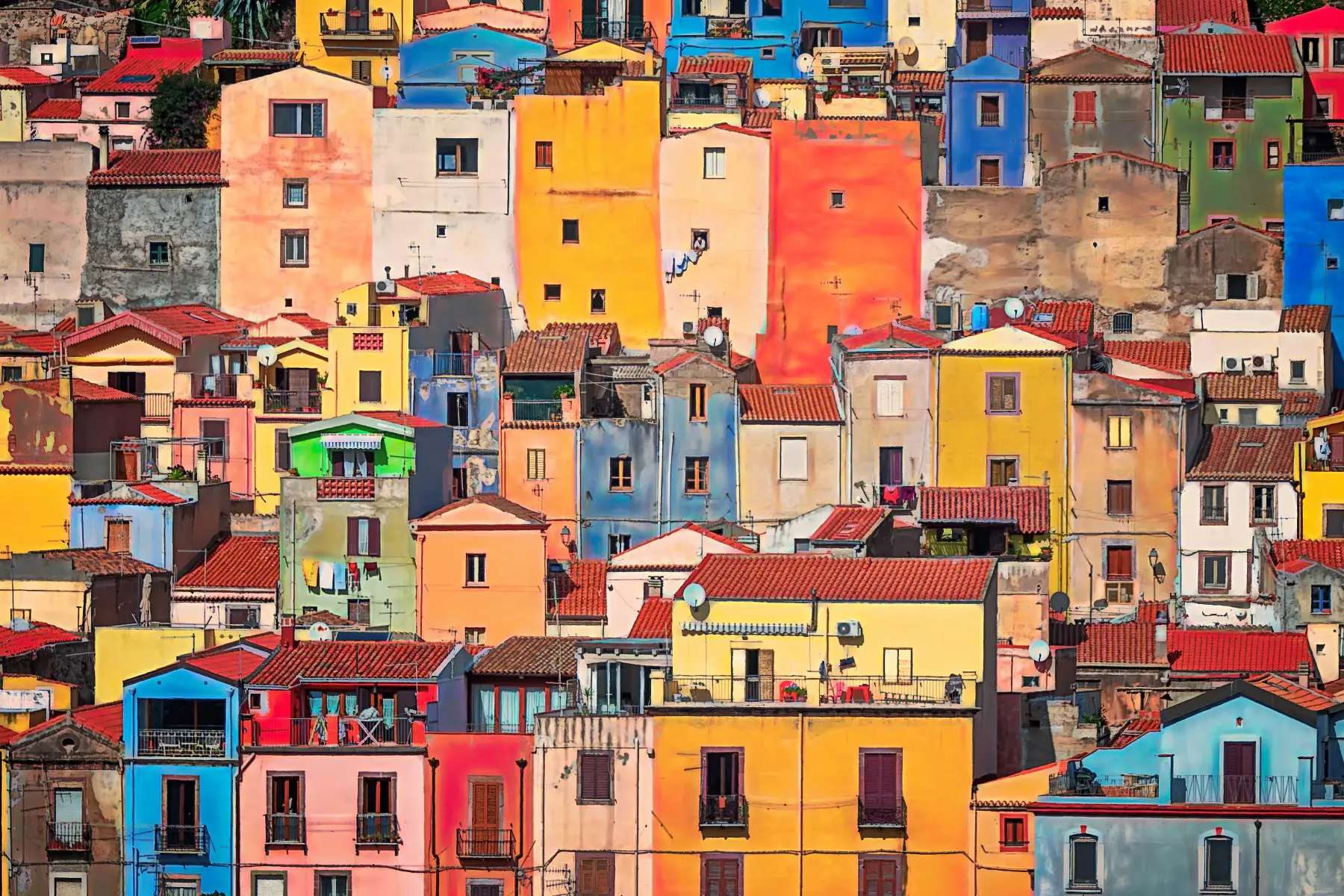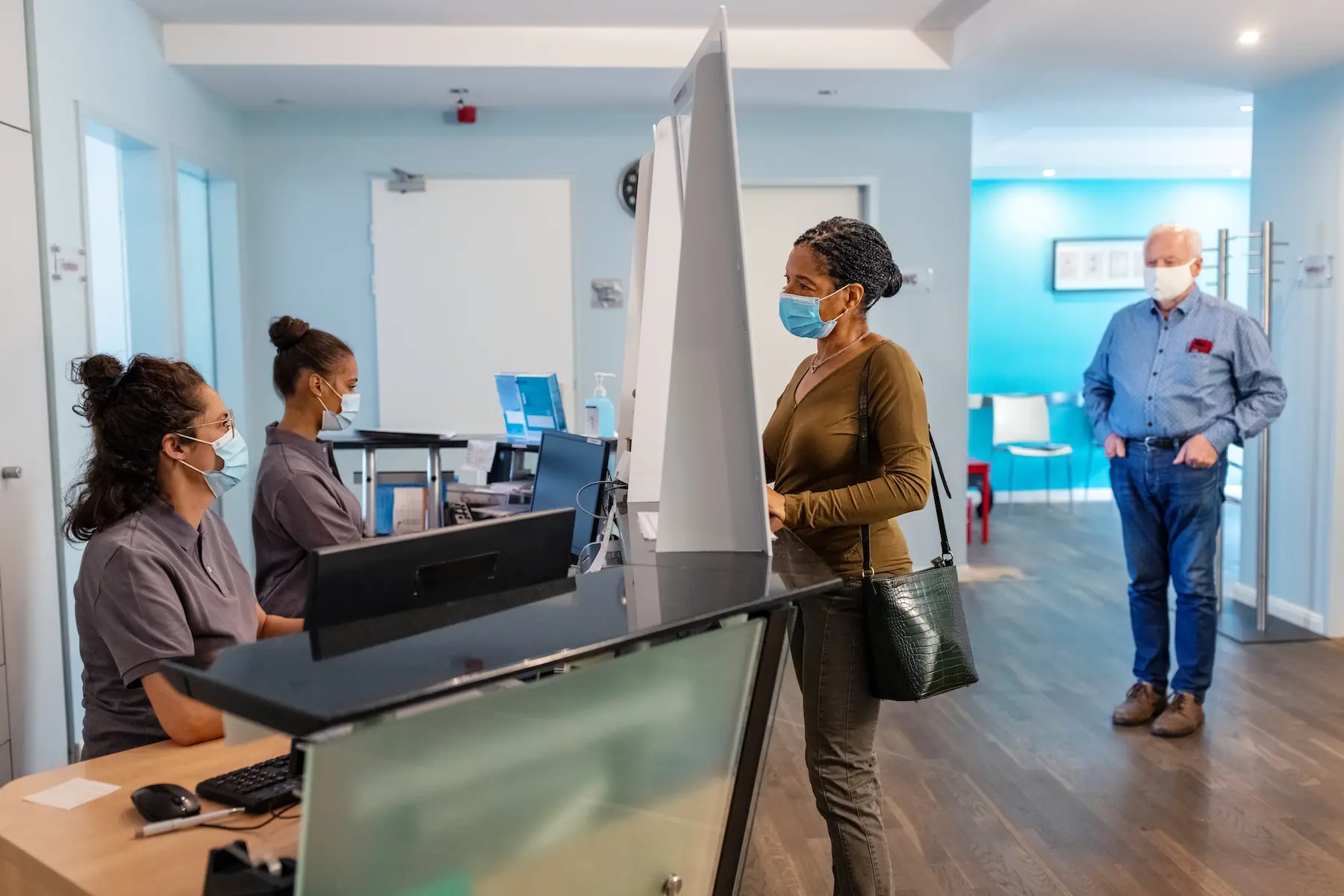Although Italy’s constitution guarantees the civil rights of all citizens, the country offers limited specific protections for LGBT+ individuals and lags behind many other democratic nations when it comes to LGBT+ rights. Furthermore, public attitudes are generally more conservative than in many other parts of Europe, particularly outside of the big cities.
Here’s a detailed look at the current situation for Italy’s LGBT+ community, with sections on:
- Overview of LGBT+ rights in Italy
- Italian LGBT+ family and parenting rights
- Discrimination against LGBT+ people in Italy
- Violence and hate crimes against the LGBT+ community
- What are Italian’s view on gender identity?
- Italian public attitudes towards LGBT+ people
- What’s the LGBT+ scene like in Italy?
- LGBT+ representation in arts, media, and sports
- LGBT+ rights movement in Italy
- Useful resources
Ground News
Get every side of the story with Ground News, the biggest source for breaking news around the world. This news aggregator lets you compare reporting on the same stories. Use data-driven media bias ratings to uncover political leanings and get the full picture. Stay informed on stories that matter with Ground News.
Overview of LGBT+ rights in Italy
Italy is an economically advanced democracy and European Union (EU) member state that scores well in indices of civil, social, and political rights. However, it falls below many other nearby countries in LGBT+ rights and freedoms. Although homosexuality has been legal in Italy since 1890, long before many other countries allowed it, its LGBT+ rankings are fairly low. Italy ranks:
- 33rd out of 49 countries on the 2023 IGLA-Europe Rainbow Index (scoring 24.76%)
- 53rd out of 203 countries on the 2023 LGBT+ Travel Safety Index (with a C rating)
- 46th out of 198 countries on the LGBT+ Equality Index (scoring 65/100)
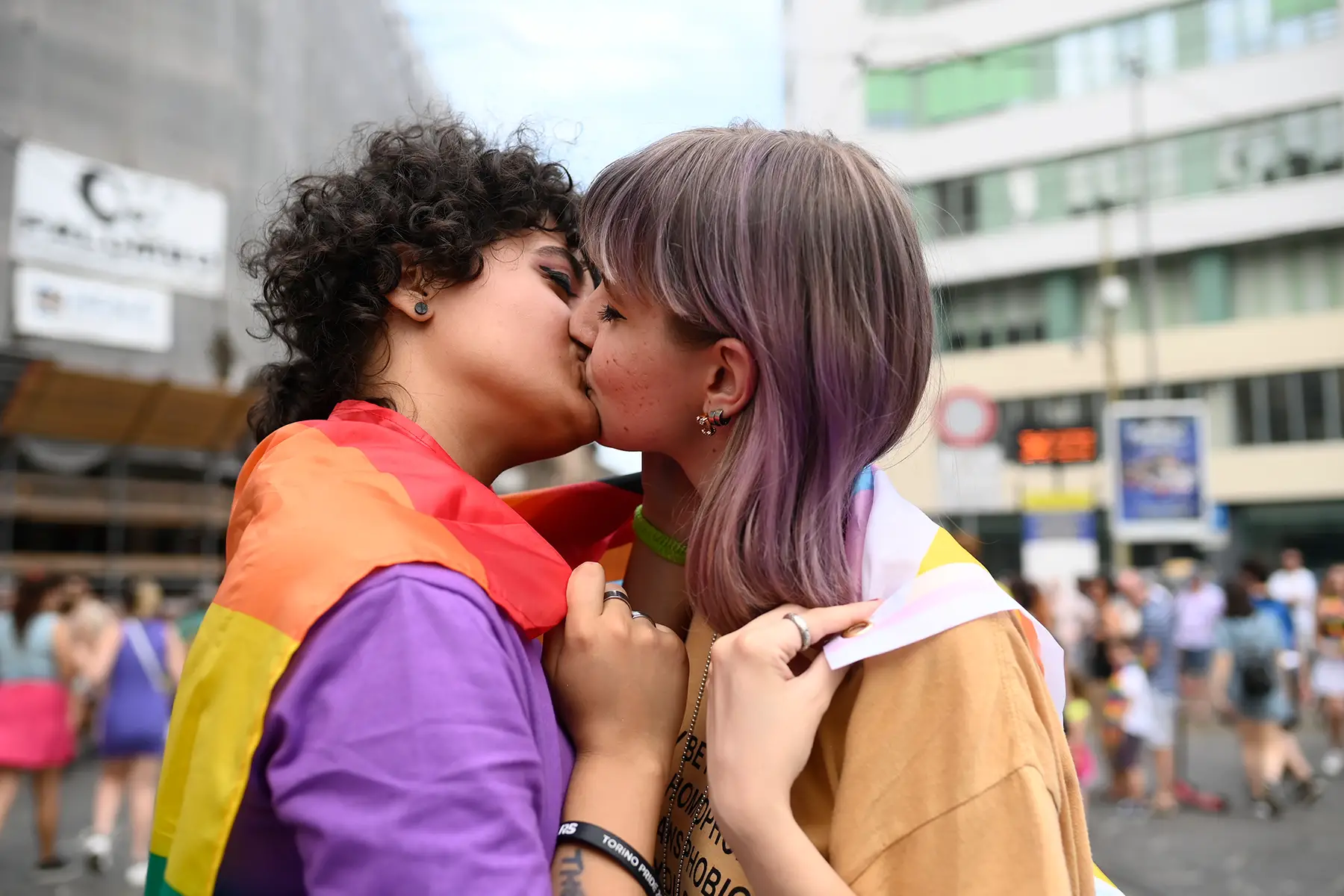
Problems include inequality and discrimination. Discrimination laws against LGBT+ in Italy only cover the workplace, and full marriage and parenthood rights are still lacking. Prejudice and harassment also still occur.
Furthermore, the Observatory for Security against Acts of Discrimination (Osservatorio per la sicurezza contro gli atti discriminatori – OSCAD) recorded 83 anti-LGBTI hate crimes in 2021. The Italian Senate recently blocked a bill recognizing hate crimes against LGBT+ people, and some fear that the new right-wing government may further restrict their rights.
Approximately 6% of Italians (PDF) identified with an orientation other than heterosexual in 2021, below the global average of 9%. Around 1% identify as transgender or non-binary. Italian citizens have been legally able to change gender since 1983, and since 2015, they no longer require surgery. However, there is no legal recognition of non-binary people.
The homosexual age of consent in Italy is 14, the same as for heterosexuals.
Italian LGBT+ family and parenting rights
Same-sex marriage
Same-sex civil unions in Italy have been legal since 2016. However, Italy is one of 13 European Union countries that does not allow full marriage between people of the same sex. This is despite 63% of Italians supporting the idea of gay marriage.
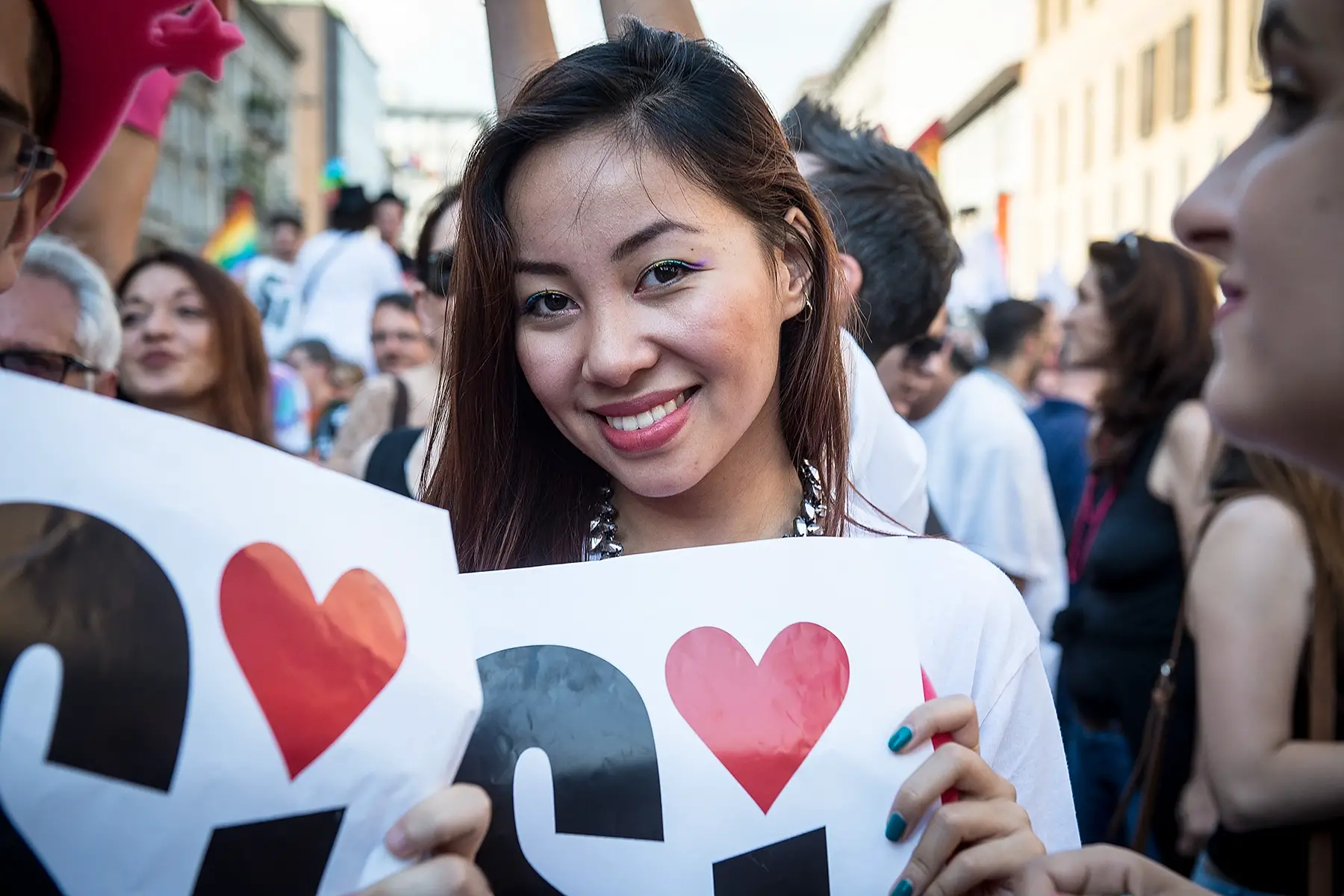
Same-sex couples in a civil partnership in Italy have many of the same legal rights as married couples. However, this does not include adoption rights.
LGBT+ adoption
Italy currently doesn’t allow same-sex couples to adopt, and same-sex parents cannot be named on Italian birth certificates. Currently, only those who have been married for at least three years (in Italian) can adopt, which automatically disqualifies same-sex couples.
There are no restrictions on same-sex couples fostering in Italy.
Fertility treatment for LGBT+ people
Italy only allows fertility treatment for opposite-sex couples. This includes in vitro fertilization (IVF) and egg/sperm donation. Commercial surrogacy, on the other hand, is illegal.
Same-sex couples in Italy can seek treatments abroad, however, they cannot both register as parents of the baby. In 2018, a lesbian couple in Turin (Torino) made the news when the authorities refused to register their newborn child born after artificial insemination treatment in Denmark.
Discrimination against LGBT+ people in Italy
The 1948 Italian Constitution enshrines the rights of citizens in Italy, stating that everyone is equal before the law. However, it doesn’t explicitly mention sexual orientation or gender self-identity, referring only to equality regardless of “personal and social circumstances.”
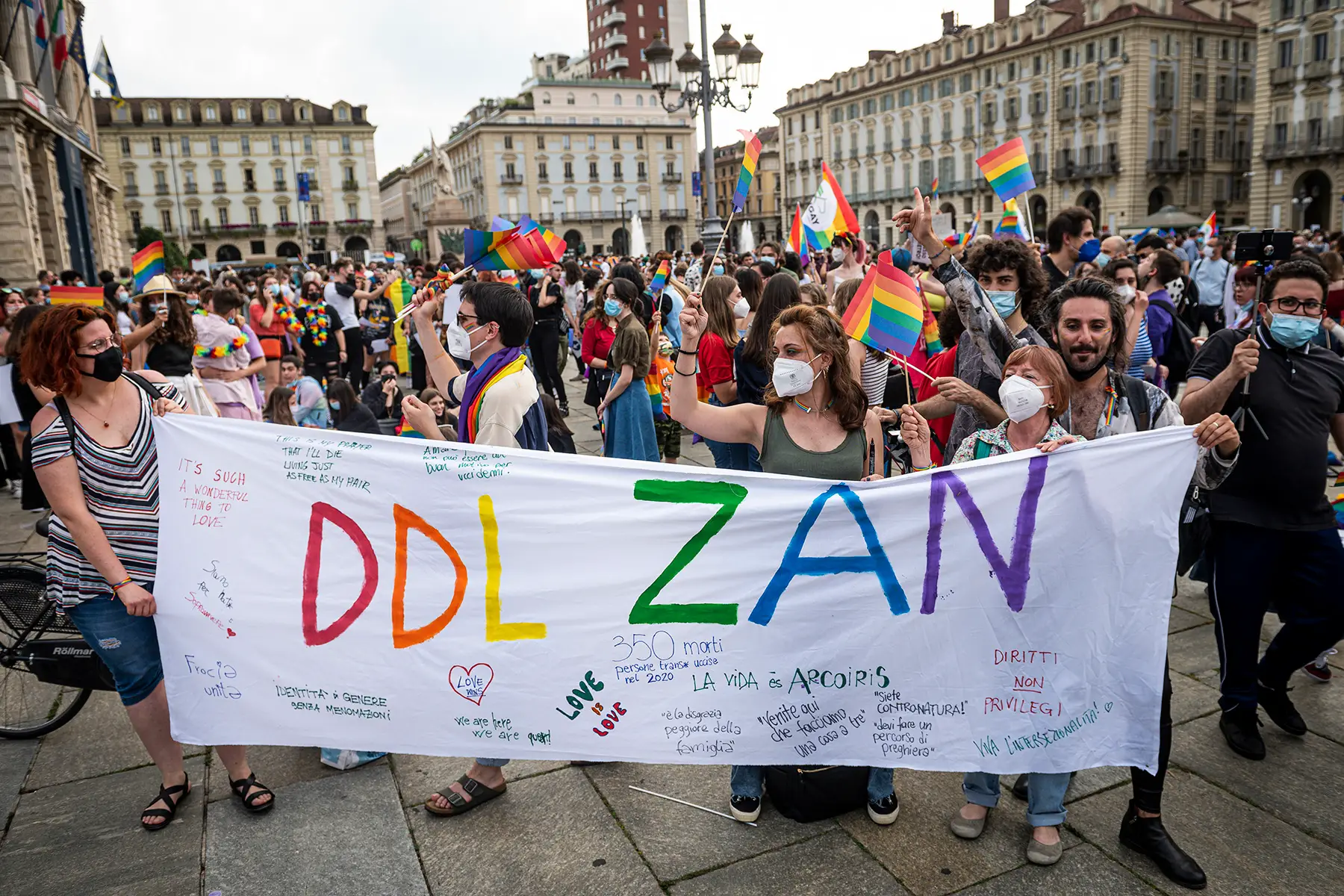
Italy has signed up to the EU Framework Directive 2000/78/EC, which covers discrimination in employment and various areas of social life. It has also ratified the UN Human Rights Declarations on Sexual Orientation and Gender Identity. In addition, a number of Italian regional authorities have passed anti-discrimination laws since 2004.
LGBT+ discrimination in employment
Employment law in Italy is the only area where discrimination against LGBT+ people is explicitly covered. Laws 215-16/2003 make both direct and indirect discrimination and harassment in the workplace illegal. This means that all workers need to be treated equally regarding recruitment, pay, promotion, and contract termination.
However, this only legally covers sexual orientation. Gender identity is not mentioned in the text. Transgender workers can take discriminatory employers to court in Italy – in Rome, a transgender teacher successfully sued a school (in Italian) for unlawful dismissal.
According to a 2019 EU study, 23% of LGBT+ Italian workers felt discriminated against in the workplace, slightly above the EU average of 21%.
Discrimination against LGBT+ people in housing
There is no national housing legislation covering discrimination towards LGBT+ tenants or buyers in Italy. However, a number of regional authorities have outlawed discrimination based on sexual orientation and gender identity in accommodation and public services. These include Tuscany, Liguria, Marche, Sicily, Piedmont, Umbria, Emilia-Romagna, and Campania (links in Italian). Since 2016, Italian couples in civil partnerships can take out a mortgage on the same terms as married couples.
According to current EU data, 12% of LGBT+ people in Italy said they had experienced discrimination in housing in the last 12 months, slightly above the EU average of 11%.
There are a few local housing organizations providing services and support to the LGBT+ community in Italy. These include Casa Refuge in Rome and TO Housing in Turin.
LGBT+ discrimination in education
Studies have shown that sex education in Italy is lacking, including what schools teach children about sexual and gender identities. Italy is one of the only EU member states where sex education is not mandatory. It is mostly down to the regional authorities to decide the subject matter and how to teach it, which means that learning regarding LGBT+ issues is uneven across the country.
In a recent EU survey (2019), 33% of pupils aged 15–17 in Italy said teachers addressed LGBT+ issues in a positive and balanced way, in line with the EU average. In addition, 28% of LGBT+ pupils said they hide their sexual/gender identity at school, below the EU average of 30%.
Discrimination against LGBT+ people in healthcare
Although Italy has a universal public healthcare system offering free or low-cost services to all residents, there are currently no specific services targeting LGBT+ patients (PDF) at the national or regional level. Furthermore, research into the health needs of Italy’s LGBT+ community is poor, and anti-discrimination legislation only exists at a regional level in some areas.

LGBT+ individuals in Italy have been allowed to give blood since 2001. The current risk-based system treats all donors equally. Conversion therapy is not explicitly banned in Italian law, however, the National Psychological Association stated in 2013 that it goes against its code of ethics. Gender reassignment surgery is available to adults as a paid-for treatment on the national health service, which health insurance can cover. All newborns in Italy are categorized as male or female, even in ambiguous cases.
A 2019 EU survey found that 12% of LGBT+ patients in Italy had experienced discrimination in healthcare. This rose to 27% for transgender and intersex patients.
LGBT+ discrimination in the military
Compulsory military service in Italy ended in 2005. Until 1986, sexual orientation was a legitimate reason for military exclusion. Discrimination on the grounds of sexual identity was outlawed in 2010, however, the current regulation doesn’t cover transgender officers. An estimated 5–10% of serving officers in Italy are lesbian, gay, or bisexual.
Despite the ban on discrimination, some service personnel still experience harassment and prejudice due to their sexual orientation.
Violence and hate crimes against the LGBT+ community
Italy has lower levels of violent attacks and hate crimes against its LGBT+ community than overall EU average figures. However, they do still occur. According to the most recent EU statistics (2020):
- 8% of Italy’s LGBT+ have experienced physical attacks in the last five years, compared to the 11% EU average
- 32% have experienced harassment for being LGBT+ in the last 12 months, compared to the 38% EU average
- 41% of physical attacks in Italy took place in an open public space
- Only 24% reported physical attacks. The most common reason for not telling the authorities about these incidents was thinking that nothing would be done about them.
Current hate crime and hate speech laws in Italy do not cover LGBT+ people. The Italian Senate recently blocked proposals to extend existing laws, and the issue has divided the Italian public.
What are Italian’s view on gender identity?
Around 1% of Italians have a gender identity other than male or female (e.g., transgender, non-binary, or gender-fluid), compared to a 2% global average.
People in Italy have been legally able to change gender since 1982. Since 2015, they have been able to do this without undergoing gender reassignment surgery. However, they will need to show proof of gender dysphoria (such as documents from a medical professional) and obtain a court order.
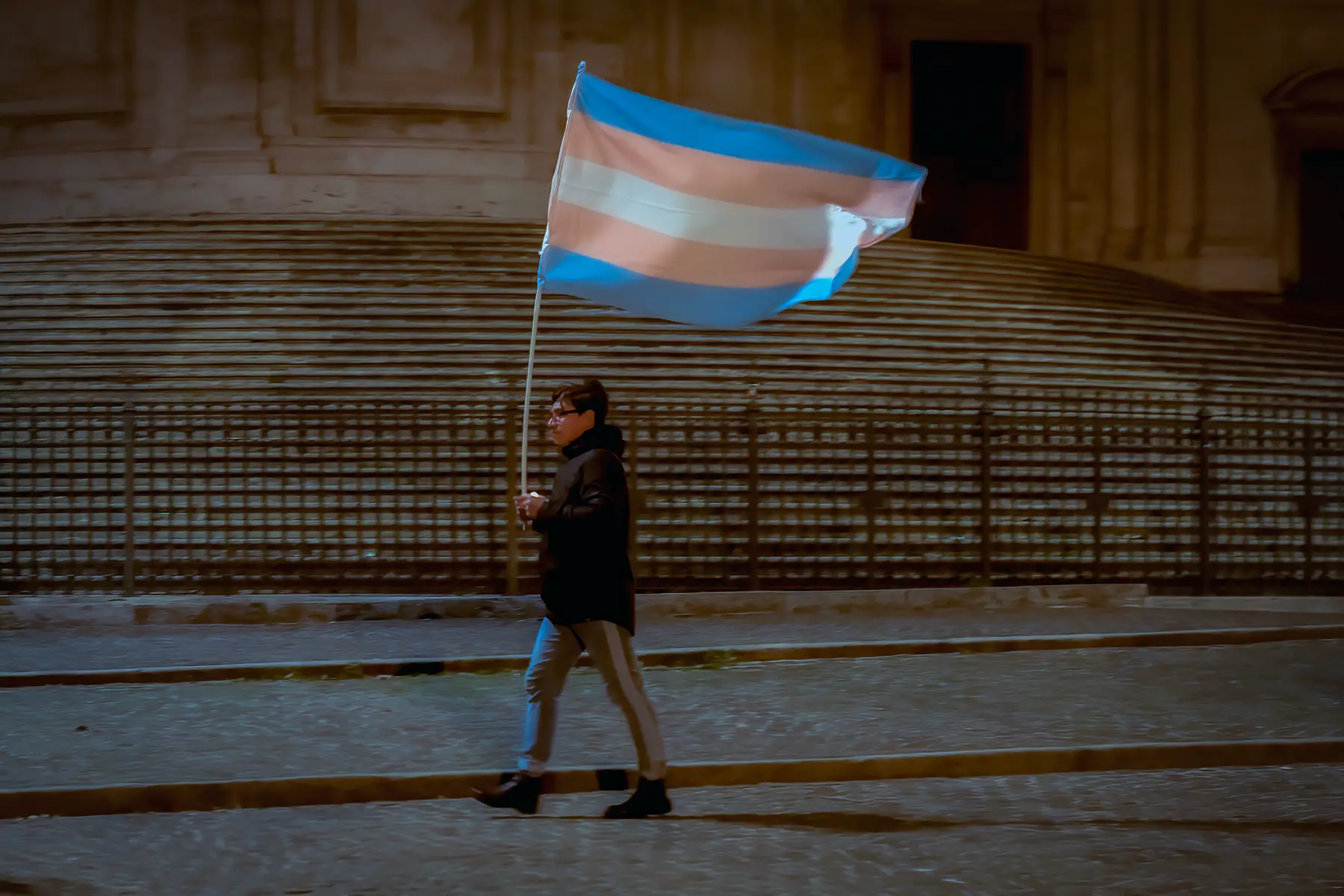
You can legally change gender in Italy once you reach the age of 18. This is also the minimum age for transgender hormone therapy. However, regional courts in Trento (in Italian) recently allowed a 16-year-old to change their gender on the condition of parental consent and medical guidance.
There is no legal recognition of non-binary genders in Italy. All newborns are registered as either male or female, even intersex children. Laws permit corrective gender surgery on intersex children without the child’s informed consent. However, in a landmark case in Rome in 2022, a court recognized a non-binary person’s gender for the first time.
Italian gender-neutral pronouns
The Italian language is grammatically different from English in that all nouns are gendered (either masculine or feminine), and Italian speakers do not always use a pronoun to refer to the person they are speaking about.
However, the common word for “they” is loro instead of using he/she (lui/lei). Some in Italy have also taken to using lxi or l*i in the written form. Italian speakers also sometimes add *, @, x, u, or ə to words as gender-neutral markers in writing.
Italian public attitudes towards LGBT+ people
When it comes to indices of public perception, Italy scores higher than global averages but below many European Union countries. According to a 2019 survey by the Pew Research Center, 75% of Italians say homosexuality should be accepted by society. This is below an average of 86% in selected European countries (Sweden, the Netherlands, Spain, France, Germany, the UK, Italy, and Greece) but higher than in many other regions.
According to the IPSOS LGBT+ Pride 2021 Global Survey:
- 63% of Italians support gay marriage, and a further 20% support civil partnerships, compared to global averages of 54% and 17%
- 59% of Italians support same-sex adoption, compared to 61% globally
- 57% of Italians support openness among LGBT+ people, and 52% support public displays of affection, compared to global averages of 51% and 37%
- 66% of Italians support laws banning discrimination against LGBT+ people, compared to 55% worldwide

EU research from 2019 finds that 39% of LGBT+ people in Italy are comfortable being open about their sexuality and gender identity, compared to the EU average of 47%. However, only 8% of LGBT in Italy believe the government effectively combats prejudice and intolerance against LGBT+ people, compared to the EU average of 33%.
Separate EU research from the same year shows that 43% of Italians support people legally changing their gender, below the EU average.
2016 research (PDF) by IPSOS and the Williams Institute on transgender rights found that:
- 72.6% of Italians support people being allowed to change their gender by law
- 78.5% support anti-discrimination protection for transgender people
- 41.3% support transgender adoption
- 52.4% believe that being transgender is a natural occurrence
What’s the LGBT+ scene like in Italy?
Despite areas for improvement in terms of legislation and attitudes, Italy has a sizable LGBT+ community. Many Italian cities are considered gay-friendly, and Pride parades take place in June and July in multiple locations. Rome held the first WorldPride event back in 2000, promoting LGBTQ issues on an international level.
Other big events in the Italian LGBT+ calendar include the Italy Gay Summer Party in September and the Florence Queer Festival in October. Many Italian cities now also have annual LGBT+ film festivals, such as the Lovers Film Festival in Turin (Torino). Furthermore, Italy held its first LGBT+ History Month in April 2022.
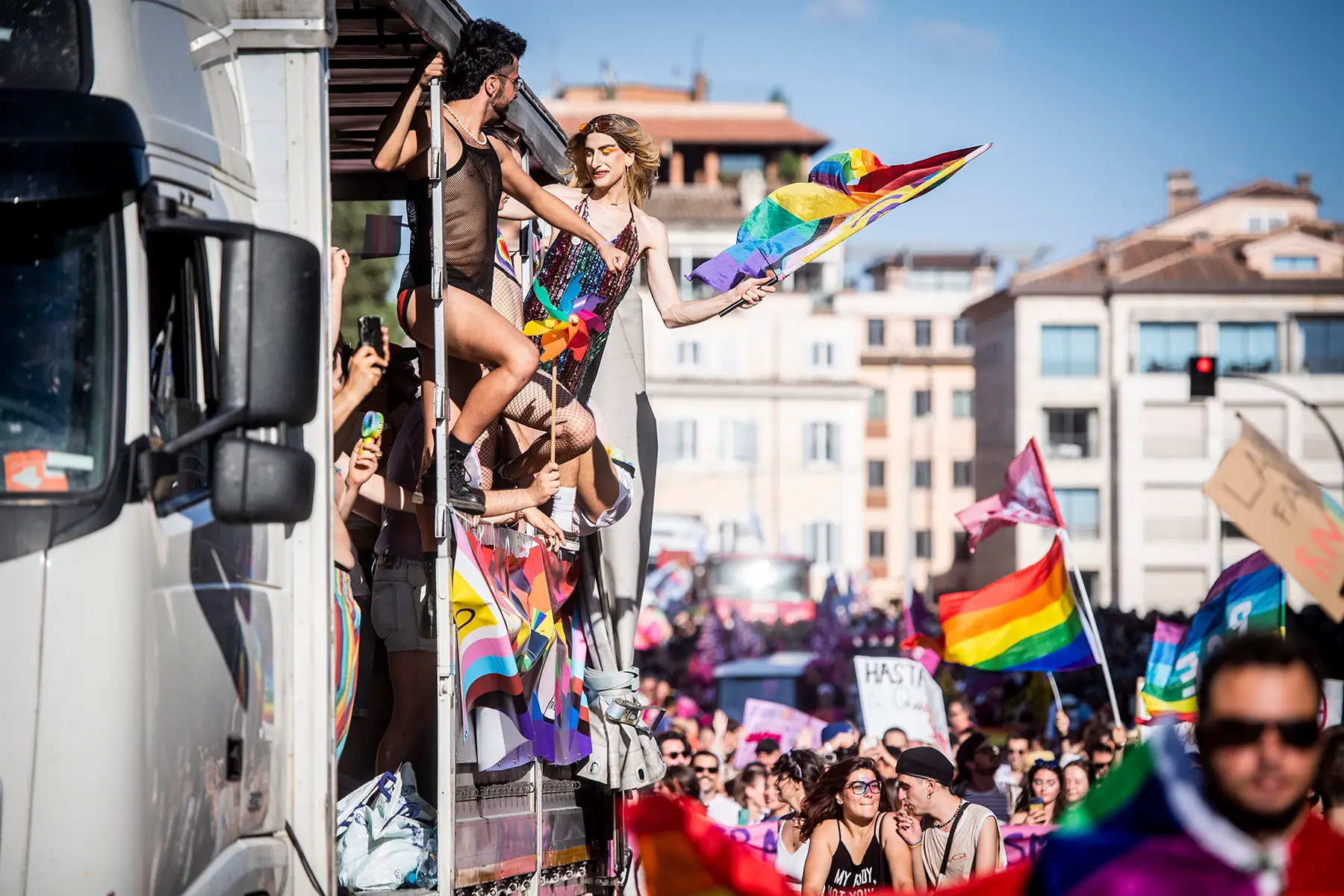
The most LGBT-friendly places in Italy include:
- Milan – considered Italy’s LGBT+ capital, thanks to its many gay-friendly districts, bars, and events. The city has a monthly Gay Party and LGBT-friendly neighborhoods like Porto Venezia.
- Rome – the Italian capital has an annual outdoor event called Gay Village running from June to September. LGBT-friendly neighborhoods include San Lorenzo and Laterano, home to Via di San Giovanni (known as Italy’s ‘Queer Street’).
- Bologna – home to LGBT+ organizations such as the Cassero LGBT Center and MIT, while via del Pratello has many LGBT-friendly bars.
- Sicily – in this region, you can enjoy a progressive vibe in cities such as Catania, Palermo, and Taormina
Other LGBT-friendly cities in Italy include Naples, Turin, Florence, and Gallipoli.
LGBT+ representation in arts, media, and sports
LGBT+ representation and visibility are improving in Italy, aided by developments such as LGBT+ History Month and the increasing number of annual festivals. The 2021 Pride Survey showed that 65% of Italians support more openly lesbian, gay, and bisexual people in sports, and 37% support more LGBT+ in TV, films, and advertising.
There are and have been many high-profile LGBT+ people in Italy. These include:
- Designer Giorgio Armani
- Politician Rosario Crocetta (the first openly gay Italian Mayor)
- Swimmer Alex di Giorgio
- Film producer Marina Cicogna
- Actor/singer Naike Rivelli
- Actor/politician Vladimir Luxuria (Europe’s first transgender parliamentarian)
- Politician Gianmarco Negri – the first transgender Mayor in Italy

LGBT+ media publications in Italy include:
LGBT+ rights movement in Italy
Groups and organizations working to offer support to LGBT+ communities and improve their rights in Italy include:
- Arcigay – This national LGBT+ organization was Italy’s first. They focus on policy work, education, and campaigns.
- Arcilesbica – This lesbian rights group in Italy fights prejudice and discrimination against lesbians. However, in recent years, some have accused the organization of taking transphobic positions.
- Diversity Lab – This Foundation promotes diversity in Italian business and media.
- EDGE – This network allows LGBT+ professionals in Italy to connect.
- Famiglie Arcobaleno – An association for LGBT+ parents.
- Movimento Identità Transessuale (MIT) – This transgender rights group has numerous projects and services to support trans people, sex workers, and LGBT+ migrants.
- Parks – Liberi e Uguali – A non-profit aiming to improve the work environment for LGBT+ employees in Italy.
- Rete Lenford – An association of lawyers supporting Italy’s LGBT+ community.
Useful resources
- LGBT+ Equality Index – measures equality for LGBT+ in countries worldwide
- IGLA-Europe Rainbow Index – assesses the situation for LGBT+ people in Europe
- EU Data Explorer – contains the results of the most recent LGBT+ survey from 2020



